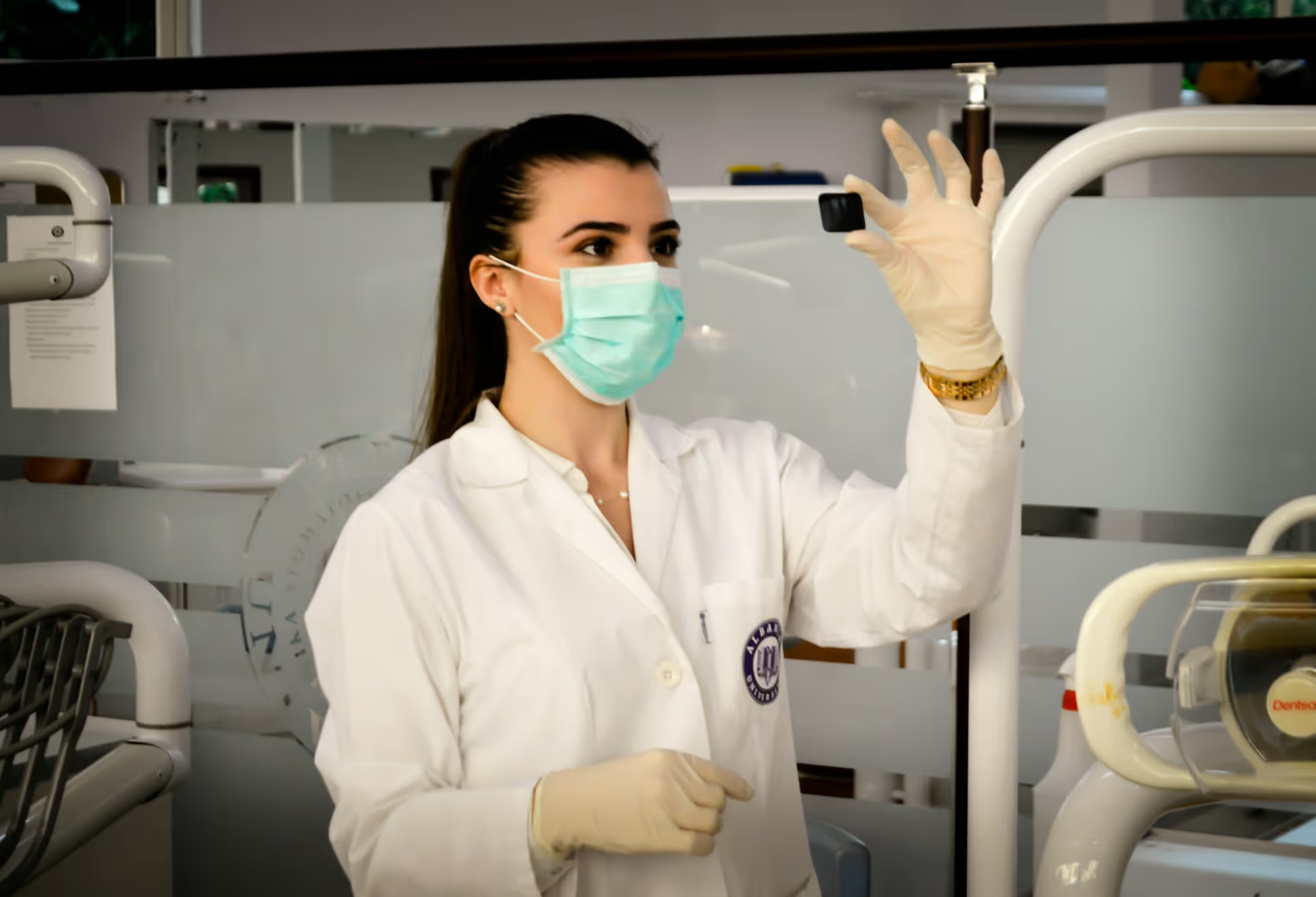MBBS, or Medicinae Baccalaureus Baccalaureus Chirurgiae in Latin and Bachelor of Medicine, Bachelor of Surgery in English, is an undergraduate degree for those who want to pursue Medicine. However, MBBS in Germany is not exactly the same as in countries like India, Pakistan, or Bangladesh, in fact, the term “MBBS” isn’t used in Germany at all.
Overview of MBBS in Germany
Pursuing a medical education in Germany involves more than just obtaining a degree; it means diving into a very challenging academic setting while also gaining practical clinical experience right from the beginning.
MBBS Programme Structure in Germany
While the term "MBBS" is widely recognised internationally, in Germany the medical programme follows the Staatsexamen format, which typically takes 6 to 6.5 years and is divided into three major phases:
- Pre-clinical phase (2 years), which focuses on basic sciences: anatomy, physiology, biochemistry and ends with the First State Examination.
- Clinical phase (3 years), which covers internal medicine, surgery, pediatrics, psychiatry, and other specialties and includes extensive hospital-based practical training.
- Practical year (1 year), which includes full-time hospital placements in different departments.
Upon passing the final exams, graduates receive their license to practice medicine in Germany (Approbation).
Key benefits of studying MBBS in Germany
There are a few benefits of studying Medicine in Germany, particularly:
- Low or no tuition fees at public universities
- Extensive hands-on training in real clinical settings
- Opportunities to work in Germany’s healthcare system after graduation
- Strong focus on research and medical innovation
Challenges and disadvantages for international students
One of the biggest hurdles is the language requirement. Unlike all the other fields of study, almost all medical programmes are taught in German, and universities typically expect a C1 proficiency level before admission.
The admissions process is also extremely competitive, with limited seats and high academic standards, meaning only top-performing applicants are accepted.
Students must also prepare for the long duration of the programme, which can take over six years to complete before obtaining a full license to practice.
Eligibility Requirements for MBBS in Germany
Getting into a medical programme in Germany is highly competitive, and international students must meet strict academic, language, and entrance exam requirements.
Since medicine is considered a high-demand field, universities set higher standards compared to other degree programmes.
Academic qualifications and grade criteria
To study medicine in Germany, you must have qualifications equivalent to the German Abitur (university entrance qualification). For many international students, this means:
- Completion of 12 years of schooling plus a foundation year (Studienkolleg), unless your home country’s school system already matches German standards.
- A strong background in biology, chemistry, and physics at the high school level.
- Excellent grades, since admission to medicine in Germany often requires the equivalent of at least 90% or of a 1.0–1.5 in the German grading system.
German and English language requirements
Since almost all MBBS-equivalent medical programmes in Germany are taught in German, you’ll need very high proficiency before you can apply. After all, during the clinical practice period in hospitals, you will need to communicate in German with patients.
A minimum C1 level is recommended for medicine, and keep in mind that, for most universities, accepted certificates include TestDaF (Level 4 in all parts), DSH-2, or Goethe-Zertifikat C1.
Top MBBS Universities in Germany
One of the pros of choosing to study medicine in Germany is that the country is home to some of the world’s best medical universities, known for their good training, cutting-edge research, and state-of-the-art hospitals, equipped with helpful and modern equipment.
While public universities dominate the medical education scene, there are also a few private institutions offering medical programmes, often in English.
Leading public medical universities
Public universities in Germany provide the Staatsexamen medical degree at little or no tuition cost (depending on the region), but competition for admission is fierce. Some of the most respected include:
- Charité – Universitätsmedizin Berlin: one of Europe’s largest university hospitals, renowned for research in medicine, neurology, and public health.
- Ludwig Maximilian University of Munich (LMU): offers a strong clinical programme with extensive hospital affiliations.
- Heidelberg University: Germany’s oldest university with a medical faculty that ranks among Europe’s best.
- University of Freiburg: known for its interdisciplinary approach and research in molecular medicine.
- University of Tübingen: specializes in oncology, neuroscience, and rare diseases.
Private medical universities and colleges
While rare, some private institutions offer medical degrees in Germany. These often have higher tuition fees but may provide smaller class sizes and English-taught programmes. Examples include:
- Witten/Herdecke University: Germany’s first private university, offering a human medicine programme with a strong focus on patient care.
- Medical School Hamburg (MSH): Offers various health sciences programmes, though its medicine programmes may have different structures from public universities.
Application and Admission Process for MBBS in Germany

Applying for an MBBS-equivalent medical programme in Germany is a process that requires careful planning, especially because medical seats are highly competitive. Deadlines are strict, and missing even one document can delay your application by a full year.
How to apply for MBBS in Germany
Most medical universities in Germany use one of two application routes:
- Uni-Assist – An application service for many German universities that screens international applications before forwarding them to universities.
- Direct application – Some universities require you to apply directly via their own admissions portal.
Before you apply to study medicine in Germany, we recommend you research if you’ll need to attend a Studienkolleg before starting medicine (and this is very likely).
Required documents and deadlines
While requirements vary slightly by university, most medical applications will include:
- Completed application form (via Uni-Assist or university portal)
- Secondary school leaving certificate and transcripts
- Proof of equivalence to the German Abitur (often via Studienkolleg qualification)
- German language certificate
- Passport copy
- Motivation letter explaining your interest in medicine and studying in Germany
- CV with academic and extracurricular details
- NEET scorecard (for Indian students)
- Proof of funds (blocked account confirmation)
- APS certificate (for Indian, Vietnamese and Chinese students)
자주 묻는 질문
독일 유학에 대한 일반적인 질문에 대한 답변을 찾아보세요.
Can I get a scholarship for MBBS in Germany?
Yes, but scholarships for medicine are competitive. Options include DAAD scholarships, state-specific funding programmes, and university merit awards.
Can I study MBBS in Germany in English?
Fully English-taught medical programmes are extremely rare in Germany. Almost all public medical degrees require C1-level German for lectures, exams, and patient interaction.
Can I work in Germany after MBBS?
Yes. After completing your Staatsexamen and obtaining your Approbation, you can work as a doctor in Germany. There is high demand for medical professionals, and international graduates who meet licensing requirements have strong career prospects.
How many years is MBBS in Germany?
The German medical programme takes about 6 to 6.5 years to complete, including the pre-clinical, clinical, and practical years, followed by the state examinations.
How much does MBBS cost in Germany?
At public universities, the tuition is free, however there is a semester fee of €150–€350 per semester, and living costs can get you up to €850–€1,100 per month, depending on the location of your studies and your lifestyle preferences.
Is Indian MBBS valid in Germany?
No, an Indian MBBS alone is not automatically valid for practicing in Germany. You would need to go through the Approbation process, which includes having your degree recognized and most likely taking and passing a knowledge test (Kenntnisprüfung) in German.
Is MBBS free in Germany?
Yes, at public universities there are no tuition fees for the medical degree (Staatsexamen), you only pay semester contributions of €150–€350. Private medical universities charge tuition, which can range from €10,000 to €20,000 per year.
Is NEET required for MBBS in Germany?
Yes. For Indian students, a valid NEET score is mandatory to study MBBS abroad, including in Germany, if you want your degree recognized in India later.
What are the disadvantages of studying MBBS in Germany?
One of the biggest hurdles is that medicine programmes in Germany are mostly German-taught, since clinical and practical years require interactions with the patients (usually in German). Moreover, the application process is fiercely competitive, so you need to make sure your application is strong.
비자 준비 패키지 받기
필요에 따라 맞춤화된 올인원 비자 솔루션으로 독일 여행을 시작하세요.





